Ode to Every Black Boy
We’re heartsick out here in Minnesota over the murder of our neighbor George Floyd. Power, especially the kind of unearned and internalized power inherent to white men, a brand of power that becomes particularly supercharged by a system designed to punish black bodies, is what enables this kind of unthinkable, utterly predictable tragedy. It’s important, as a white man, for me to acknowledge this. It’s important for me to talk to my seven-year-old son about his white boy body that will all-too-soon become a tall, strong white man body, despite his budding neurodivergence and the chronic illnesses he will likely inherit.
It’s important that I teach him to listen. I recently learned about Standpoint Theory, coined by philosopher Sandra Harding to describe how those who are most oppressed, who claim the least inherited power, will see the workings of society most clearly. It’s taken me years to see through the fog of whiteness, a force that obscures at it obliterates, and I have learned to listen to people who have a Matrix-like view of systemic injustice, having felt and seen and heard its effects their entire lives.
So today I turn back to Lonnie Shaw, whose elegy for Trayvon Martin we featured earlier this year. As a trans black man from Minnesota who has lived under the auspices of the state for many years, Lonnie has a lot to stay about injustice. He asks: “What if you’re black and have a disability?” Here are two poems from his forthcoming chapbook, which will be his third with Unrestricted Editions.
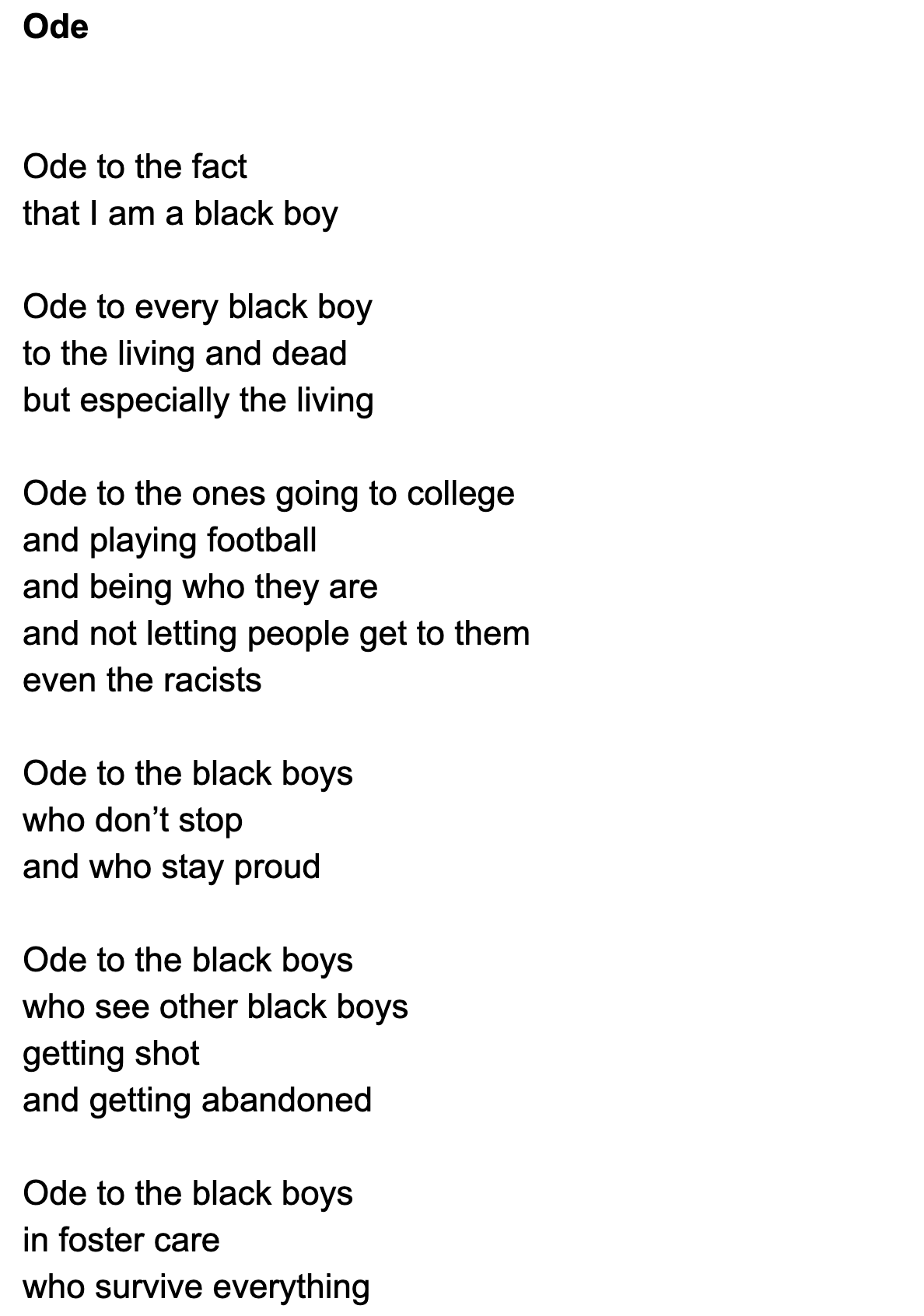
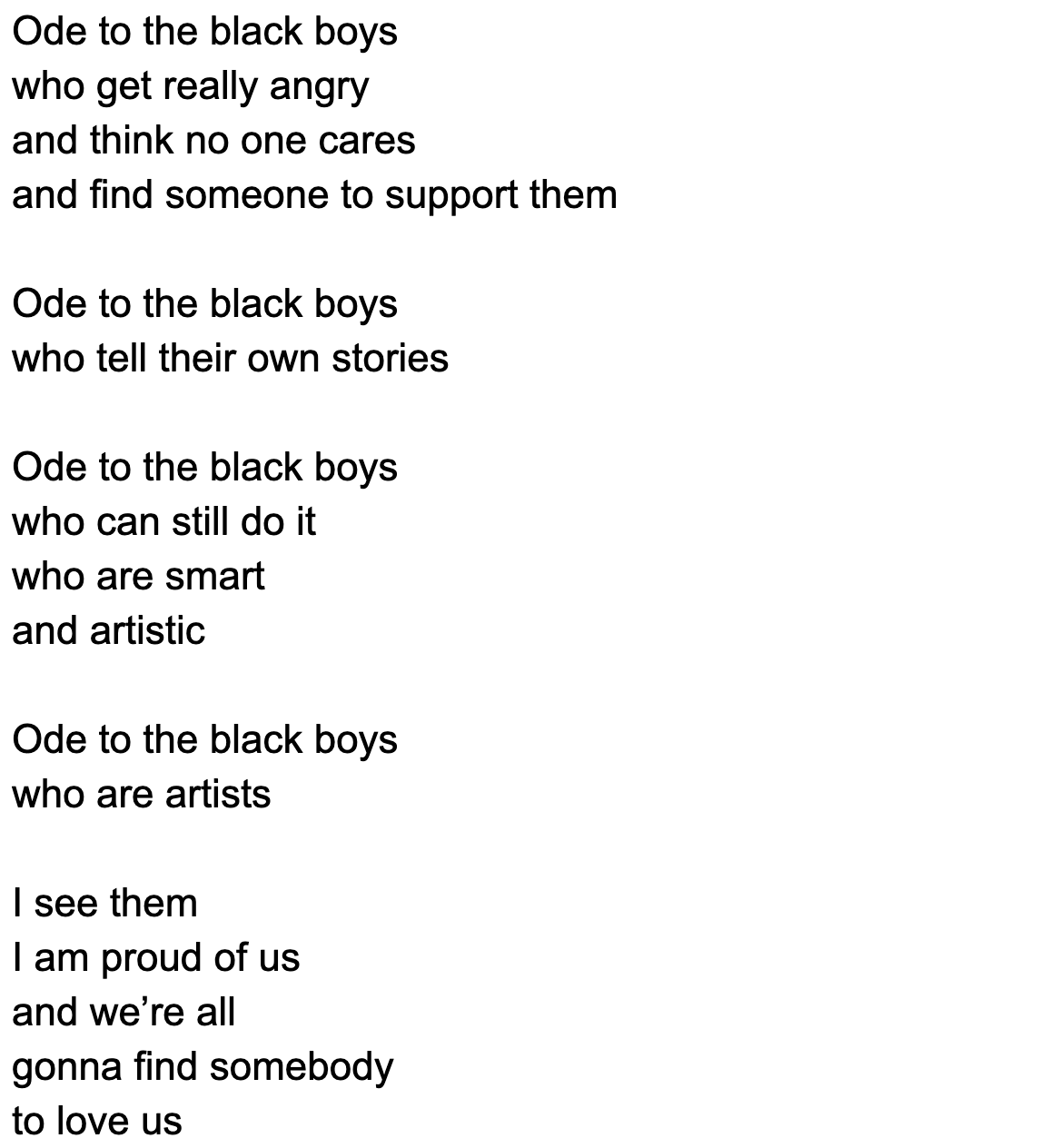
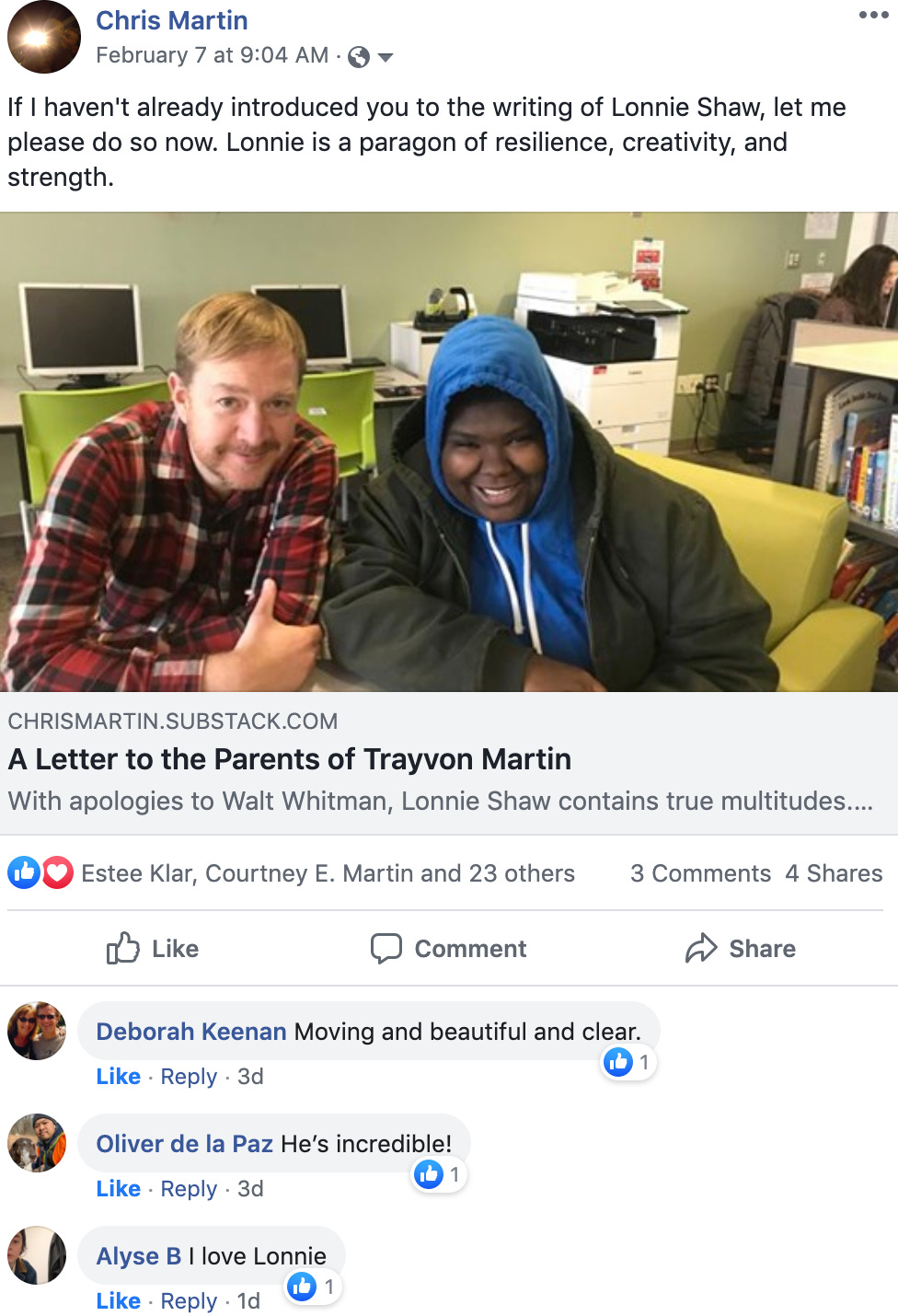
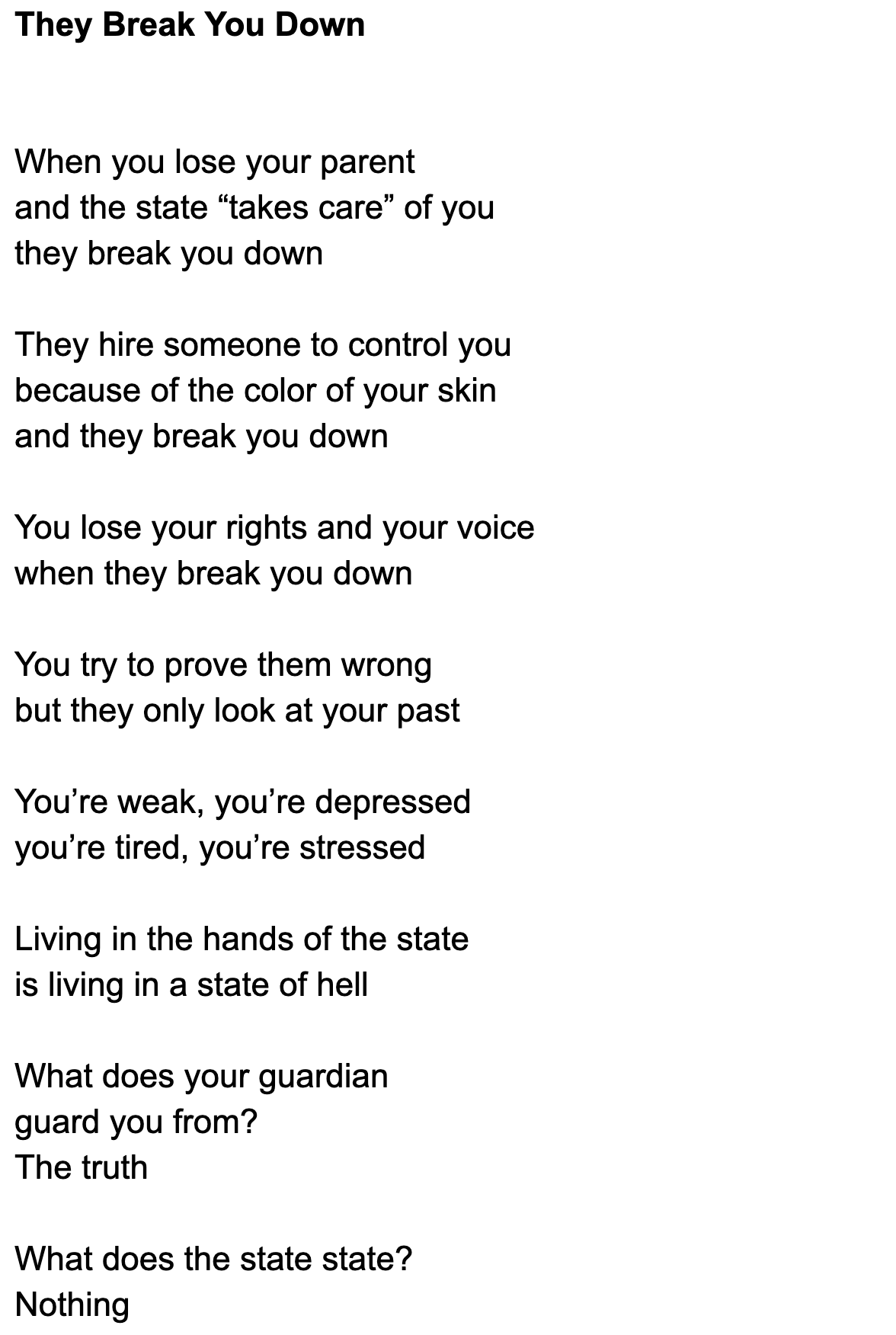
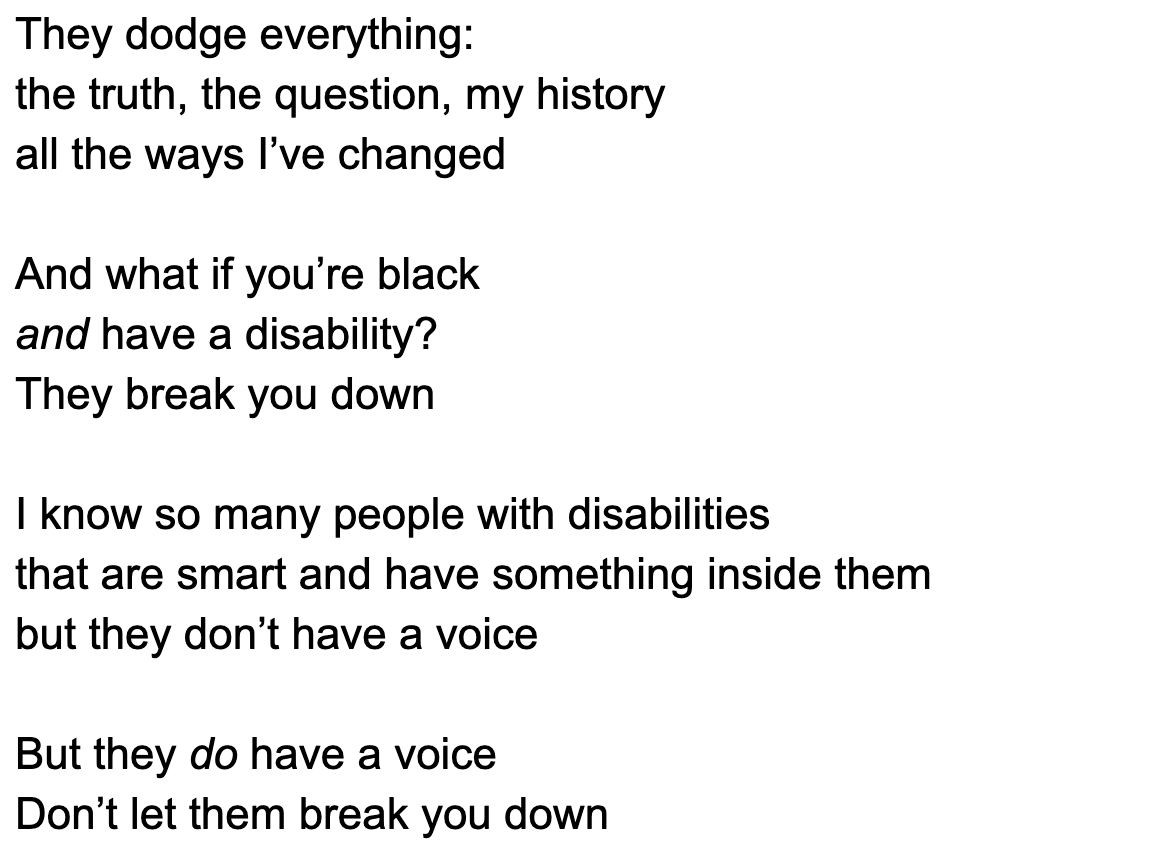
In Grief & Resistance,
Chris
PS: You can support Lonnie by purchasing his chapbooks here and here.


